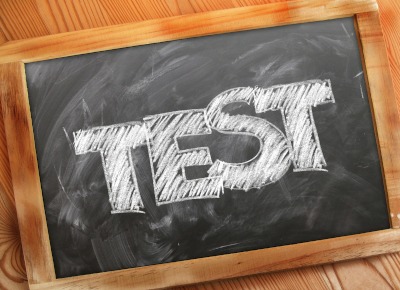Do you know that, according to the Romans, the ars oratoria (that is to say, “the art of speaking”) is the most important skill for human beings? Actually, if you think about it, we live in society thanks to our communicational ability. It is thus essential to improve our speaking ability to live in harmony and…to get better marks!
Here I am going to reveal you 10 secrets to enhance your performance during an oral test. Take a hint!
- While studying, try to build a speech speaking out loud. This is an old trick, but still one of the most important keys for a successful exam. It is important to practice our speaking ability, because, even if all the information learnt seems to work in our head, it may not be working when we say it out loud.
- When you prepare your speech, focus on the useful keywords and captivating phrase that you can use in the exam to make a good impression/massimo effetto espressivo and memorize them. You can refer to the textbook, but it is also good to find your own words in order to add a personal touch and express the concept following your personal interpretation.
- As a matter of fact, no teacher wants to listen to the same script repetead over and over again by the students. That is why it is so important to spend time on words search. Apart from the keywords, it is really useful to look for some synonyms, too. Synonims are our ace up the sleeve when we happen not to remember a specific term or when we have used the same word too many times or, again, when the word that we want to use does not fit in the phrase. Synonims make our speech more flowing and interesting. Actually, it is important to repeat your speech many times: feel always free to change it and to add little variation. Do not learn it by memory, otherwise you will find yourself helpless if you forget your script.
- Stop studying at least 15 hours before the scheduled exam time. It is important to pull the plug and relax without thinking about the exam and its subject. However, in order to focus again, it is recommended to have a look at the textbook and your notes and revise the concepts mentally ten minutes before the exam starts.
The preparatory work is, without any doubt, fundamental, but it is with the final performance that you must go all in:
- Go with the flow. Don’t try to stick with the textbook setup by presenting all the concepts with the same order and scheme used in the book. The way the book presents and explains the topics doesn’t necessarily mirror the way your mind works and your personal reasoning. If you have studied carefully, you have no reason to worry about it, just follow your own train of thoughts.
- Don’t try to say it all. Keep in mind that it is impossible during the exam to present all the information that you have learnt. Even the teacher cannot test you on all the topics. Therefore, instead of trying to show how much you have studied, try to show how well you have done it: go straight to the point when you answer a question. After that, you can develop your response, but remember to stick to the matter of the question.
- Run the show. The hints 5 and 6 will help you to stay focused. It is essential for your mind not to be distracted by other thoughts, such as “How the textbook would explain this concept?” or “Does the teacher look satisfied?”. Something that may be helpful would be to picture yourself as the teacher who is lecturing to the students. This might encourage you and make you feel more confident and free to express yourself. Don’t think that teacher’s only purpose is to give you a mark: the teacher is eager to listen to your personal way to explain and analyze the subject studied. Don’t be scared to show it!
- Everyone makes mistakes. What matters is not to let our errors get us down. It is also important to admit when you are wrong. However, if you know the reason of your mistake, try to explain it to the teacher by debating your mistake or misinterpretation. This can be much appreciated, since you would demonstrate that your studying has been deep and mindful.
- Never be silent. If you don’t know the exact answer, try to figure it out through reasoning. Again, this effort will be positively evaluated.
- Try to have fun! Oral tests are always a good challenge to improve our communicational skills and charisma.
I hope these hints will be helpful for your next oral exam. Break a leg!

